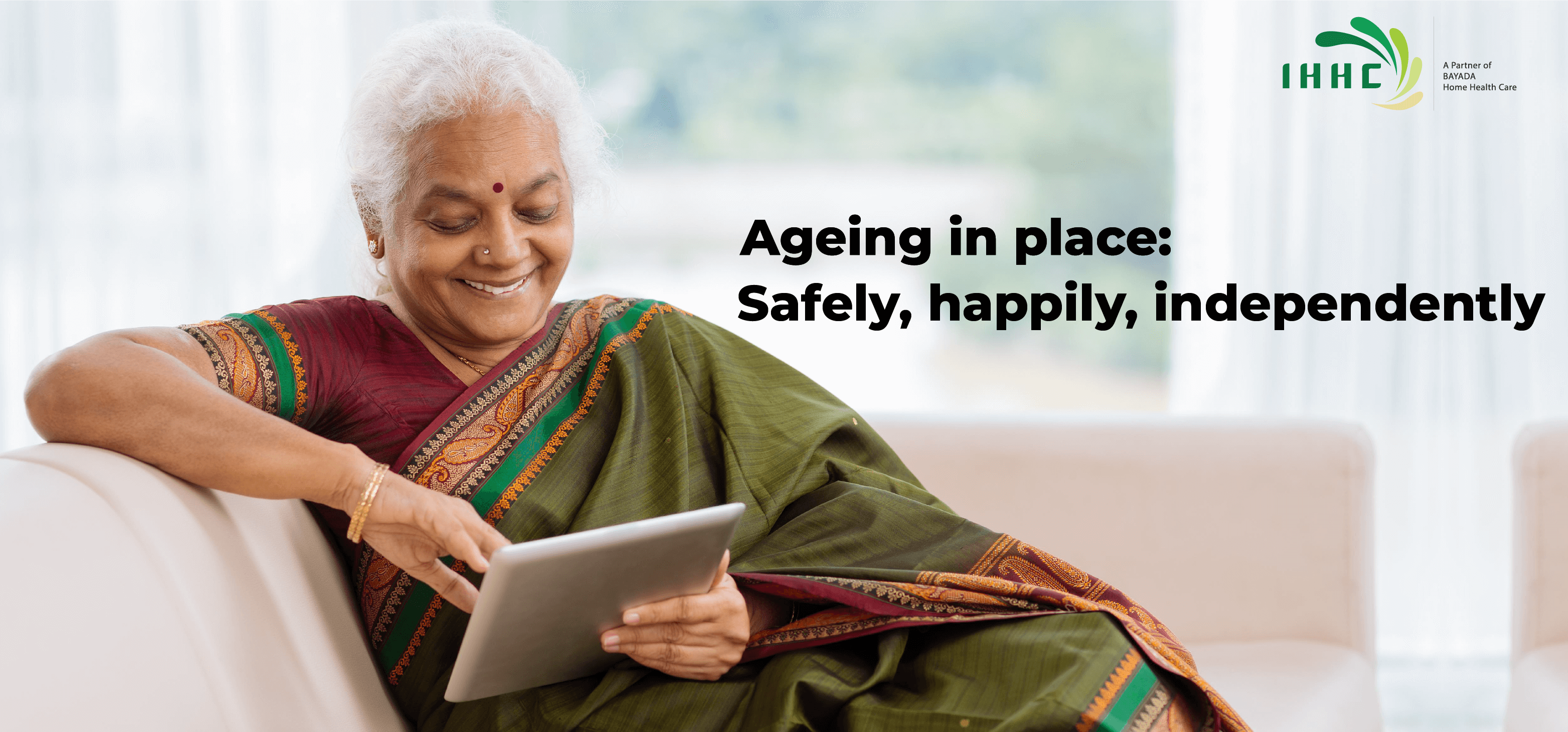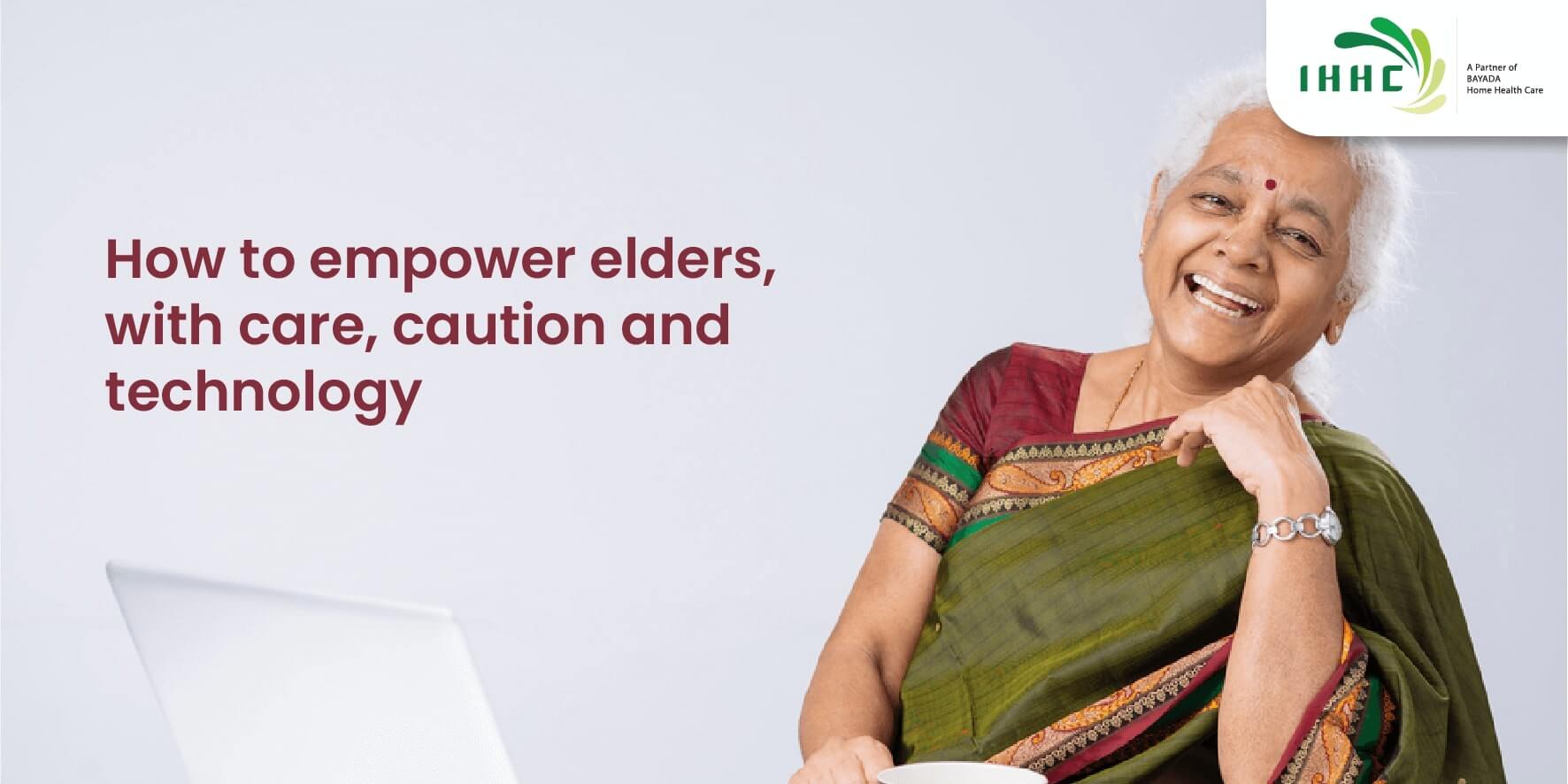Is there a need for home healthcare in India?
There are countless senior citizens who don’t want to go into an assisted living accommodation or a home – the latter still having a stigma attached to it. And, another important reason is that they don’t want to be a burden on their family members or have to adjust to a totally different way of life. The hurly-burly and bustle of living in a house that probably has young people and children gets too much for them. Hence, their desire to age in place. But, how can their family and friends ensure that doing so is a safe and healthy option? Read on…
As we grow older, we worry about losing our mobility, and thereby our independence. Balance problems, visual impairment, weakening bones and muscles, forgetfulness – all combine to make us more dependent on others. Most seniors will go to great lengths to avoid getting any kind of help -- even if they know they need it. Help them find tools so they are empowered to help themselves.
One of the primary support systems that will make them more independent, and more in charge of their own lives is technology. The right tools and gadgets will help an older person to maintain health, safety and independence at home. Technology experts, who specialize in helping senior citizens, believe that in order to age in place successfully, a senior has to be able to engage with others, remain healthy and stay safe. Skipping any of these can result in depression, isolation and poor health. Here are some technology options that can help a senior age in place:
Engaging with the world outside: Technology offers seniors unlimited opportunities to connect with friends and family for long conversations or quick updates -- necessary as some seniors suffer from isolation and depression.
These include:
- Simplified computers: Look for easy-to-use computers and touch-screen capabilities.
- Computer-free emails: Explore options that allow users to receive emails and photos without a computer.
- Smart phones vs. simple cell phones: Smart phones can be of great help but that depends on the level of a senior’s interest in technology. Easy to use cell phones are the best when it involves keeping in touch with the outside world.
- Video chats: For more tech-savvy seniors, suggest programs, such as Skype, FaceTime or What’s App that allow them to easily see and speak with others.
Maintaining good health Managing medication and maintaining mobility are the two major components in preserving physical health at home. And there are many ways of doing so, including:
- Medication reminders: Explore medication management systems that can issue reminders, dispense meds, monitor medication usage and notify caregivers when doses are missed.
- Pill dispensers: Instead of an entire system, look into automated pill dispensers that remind seniors when to take a dose and what amount to take.
- Health management: Monitor blood pressure, pulse and heartbeat, check blood glucose levels and more...all within the four walls of the home.
- Brain games: Just like the rest of the population, seniors need to keep their brains healthy. Encourage them to play games like Sudoku or crosswords or invest in more advanced programs.
Safety first: As bodies and minds age, seniors may experience new mental and physical challenges. It's more common for seniors to fall or wander off. Look into technologies that can help keep seniors’ safe when they live at home.
- Home monitoring systems: These systems operate on strategically placed sensors and cameras, from motion detectors to leak or flood detectors to item-specific detectors on doors, beds, toilets, chairs, etc. You can monitor the senior’s daily activities, and more importantly, receive notifications when the system senses a disruption.
- GPS tracking systems: These can alert the authorities and help locate a missing person quickly. Most of these systems operate by signal exchanges from satellites and nearby cell towers when the person is traveling or wandering.
Talk about these options with the senior concerned, but don't be surprised if the individual is initially resistant, as unfamiliar technology may feel intrusive. Take the time to explain how each choice can allow him or her to stay safe and ultimately support their desire to remain at home as they age – thus providing relief and peace of mind for aging seniors and their family members.




